The Last Mountain is a american film of genre Documentary released in USA on 3 june 2011
The Last Mountain (2011)
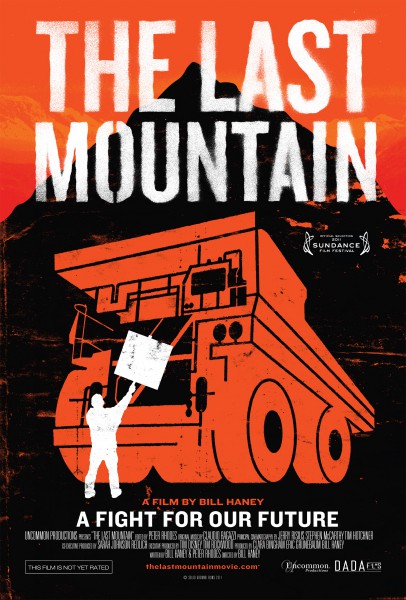
If you like this film, let us know!
- Infos
- Casting
- Technical infos
- Photos
- Videos
- Film quotes
- Characters
- Music
- Awards
Released in USA 3 june 2011
Length 1h35
OriginUSA
Genres Documentary
Themes Environmental films, Documentary films about business, Documentary films about environmental issues, Documentary films about historical events, Documentary films about politics, Documentary films about technology, Political films
Rating76%










The Last Mountain is a feature-length documentary film directed by Bill Haney and produced by Haney, Clara Bingham and Eric Grunebaum. The film premiered at the 2011 Sundance Film Festival and went into general release on June 3, 2011. The film explores the consequences of mining and burning coal, with a particular focus on the use of a method for coal strip-mining in Appalachia commonly known as mountaintop removal mining.
Based in part on Robert F. Kennedy, Jr.'s 2005 book, Crimes Against Nature and featuring Kennedy and a cast of activists and experts, the film considers the health consequences of mining and burning coal and looks at the context and history of environmental laws in the United States. Exploring a proposal to build a wind farm on a mountain in the heart of "coal country," rather than deforesting and demolishing the mountain for the coal seams within, the film suggests that wind resources are plentiful in the U.S., would provide many domestic jobs and that wind is a more benign source of power than coal and has the potential to eliminate the destructive aspects of coal.
Comments
Leave comment :
Suggestions of similar film to The Last Mountain
There are 8861 with the same cinematographic genres, 9357 films with the same themes (including 0 films with the same 7 themes than The Last Mountain), to have finally 70 suggestions of similar films.If you liked The Last Mountain, you will probably like those similar films :
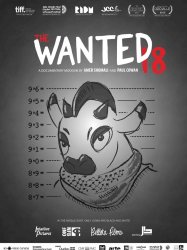
The Wanted 18 (2014)
, 1h15Origin Canada
Genres Documentary, Animation
Themes Films set in Africa, Films about animals, Environmental films, Films about religion, Films about the labor movement, Documentary films about business, Documentary films about law, Documentary films about environmental issues, Documentary films about war, Documentary films about historical events, Documentary films about politics, Documentary films about religion, Documentaire sur le monde du travail, Films about cows, Political films, Films about Jews and Judaism, Mise en scène d'un mammifère
Rating71%





L'œuvre présente les efforts des Palestiniens habitant la ville et la région de Beit Sahour, en Cisjordanie, pour démarrer une petite industrie laitière locale au cours de la première Intifada, en cachant un troupeau de dix-huit vaches laitières aux forces de sécurité israéliennes qui considérait la production de laitages comme une menace pour la sécurité nationale d'Israël.

Broken Rainbow (1985)
, 1h10Origin USA
Genres Documentary, Historical
Themes Environmental films, Documentary films about business, Documentary films about law, Documentary films about environmental issues, Documentary films about historical events, Documentaire sur une personnalité, Documentary films about politics, Political films
Actors Buffy Sainte-Marie
Rating66%






Countdown to Zero (2010)
, 1h30Origin USA
Genres Documentary
Themes Environmental films, Documentary films about environmental issues, Documentary films about war, Documentary films about historical events, Documentary films about nuclear technology, Documentary films about politics, Documentary films about technology, Political films
Actors Gary Oldman
Rating68%





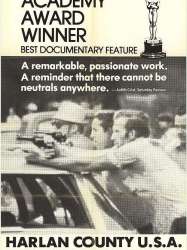
Harlan County U.S.A. (1977)
, 1h43Directed by Barbara Kopple
Origin USA
Genres Documentary
Themes Environmental films, Films about anarchism, Politique, Films about the labor movement, Documentary films about business, Documentary films about environmental issues, Documentary films about politics, Documentary films about technology, Documentary films about anarchism, Political films
Rating81%





Kopple initially intended to make a film about Kenzie, Miners for Democracy and the attempt to unseat Tony Boyle. When miners at the Brookside Mine in Harlan County, Kentucky went on strike in June 1972, Kopple went there to film the strike against Duke Power Company which the UMWA had helped to organize. The strike proved a more interesting subject, so Kopple switched the focus of her film.
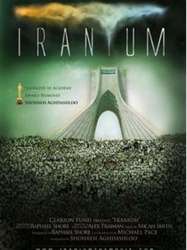
Iranium (2011)
, 1hOrigin USA
Genres Documentary
Themes Environmental films, Documentary films about environmental issues, Documentary films about war, Documentary films about historical events, Documentary films about nuclear technology, Documentary films about politics, Documentary films about technology, Political films
Actors Shohreh Aghdashloo
Rating46%





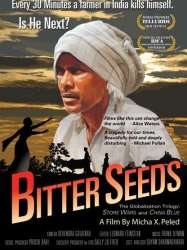
Bitter Seeds (2011)
, 1h28Origin USA
Genres Documentary
Themes Environmental films, Documentary films about business, Documentary films about environmental issues, Documentary films about historical events, Documentary films about politics, Political films
Rating76%





Micha Peled's documentary on BT farming in India observes the impact of genetically modified cotton on India's farmers, with a suicide rate of over a quarter million Bt cotton farmers each year due to financial stress resulting from massive crop failure and the price of Monsanto's Bt seeds. The film also disputes claims by the biotech industry that Bt cotton requires less pesticide and promises of higher yields, as farmers discover that Bt cotton requires more pesticide than organic cotton, and often suffer higher levels of infestation by Mealybug resulting in devastating crop losses, and financial and psychological stress on cotton farmers. Due to the biotech seed monopoly in India, where Bt cotton seed has become the standard, and organic seed has become unobtainable, thus pressuring cotton farmers into signing Bt cotton seed purchase agreements with biotech multinational corporation Monsanto.

Wiebo's War (2012)
, 1h33Origin Canada
Genres Documentary
Themes Environmental films, Films about families, Films about religion, Films about terrorism, Documentary films about law, Documentary films about environmental issues, Documentary films about war, Documentary films about historical events, Documentaire sur une personnalité, Documentary films about politics, Documentary films about religion, Documentary films about technology, Documentary films about terrorism, Political films
Rating72%





 , 1h
, 1hDirected by Saul Landau
Genres Documentary
Themes Environmental films, Documentary films about environmental issues, Documentary films about war, Documentary films about historical events, Documentary films about nuclear technology, Documentary films about politics, Documentary films about technology, Political films
Actors Saul Landau

Strawberry Fields (2006)
, 1hOrigin Israel
Genres Drama, Documentary, Fantasy
Themes Films set in Africa, Environmental films, Films about religion, Documentary films about business, Documentary films about law, Documentary films about environmental issues, Documentary films about war, Documentary films about historical events, Documentaire sur une personnalité, Documentary films about politics, Documentary films about religion, Political films, Films about Jews and Judaism
Actors Mitsuki Tanimura, Yuria Haga
Strawberry Fields points out that strawberries grown in Gaza are the only agricultural product marketed internationally as being of Palestinian origin. One of the major Gaza strawberry farms in located at Beit Lahiya. More than 1,500 tons of strawberries are exported from Gaza to Europe through the Israeli company Agrexco. In order to get overseas, however, the fruits need to pass through the checkpoint that separates Israel and Gaza. The 2005–2006 growing season coincided with the Israel's disengagement from Gaza and the rise of Hamas as the ruling political entity. The armed conflict between Israel and Hamas resulted in the closing of the border checkpoint. The strawberries grown at Beit Lahiya cannot leave Gaza, resulting in significant losses for the farmers and their Agrexco partners. Unable to transport their produce, the farmers have no choice but to dispose of their crop and prepare for the following year’s growing season.

Targeting Iran (2013)
, 1h11Origin USA
Genres Documentary
Themes Environmental films, Documentary films about environmental issues, Documentary films about war, Documentary films about historical events, Documentary films about nuclear technology, Documentary films about politics, Documentary films about technology, Political films
 Connection
Connection